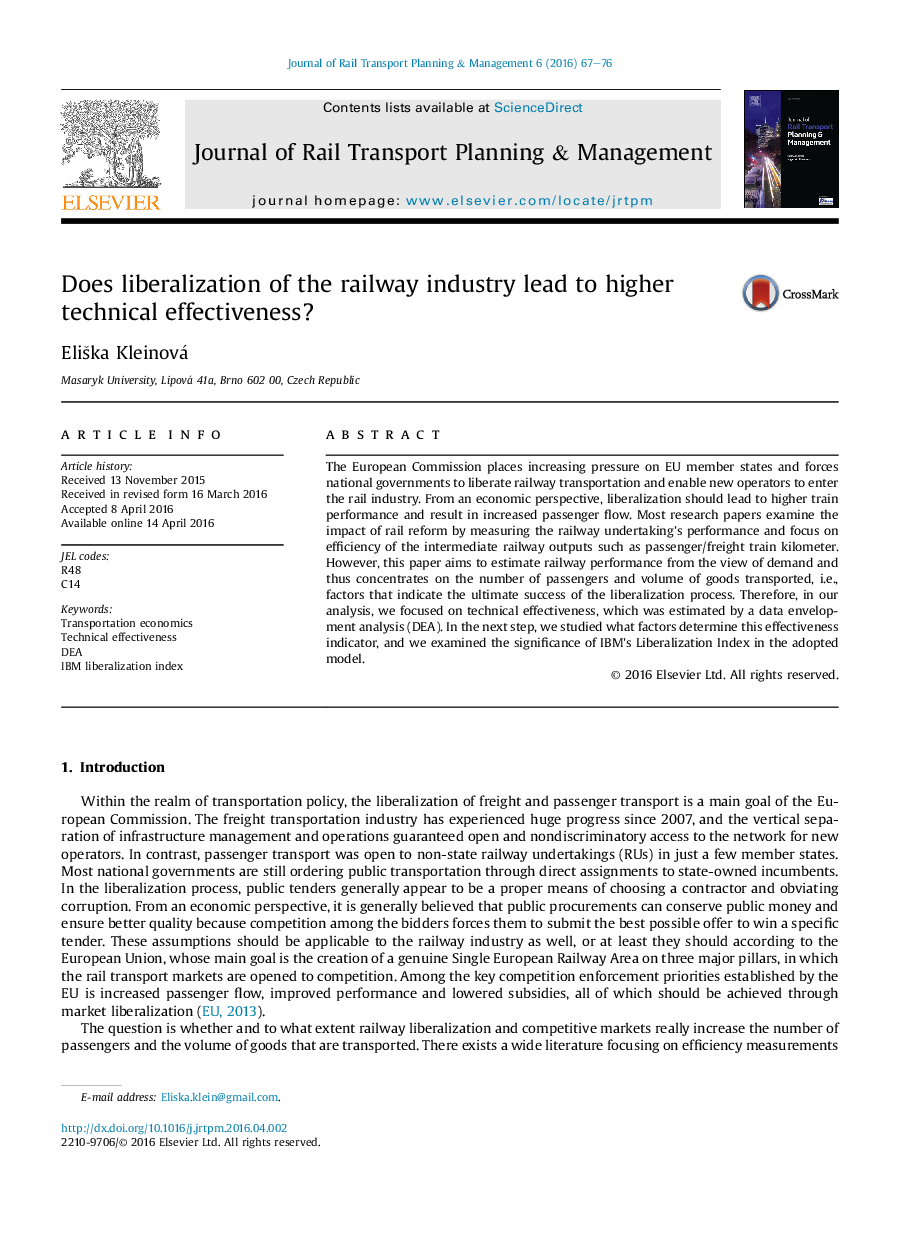| کد مقاله | کد نشریه | سال انتشار | مقاله انگلیسی | نسخه تمام متن |
|---|---|---|---|---|
| 286411 | 509468 | 2016 | 10 صفحه PDF | دانلود رایگان |
• Measuring technical effectiveness of European railways by DEA.
• Negative impact of liberalization measured by LIB index on technical effectiveness.
• Liberalization do not automatically generate a high-performance rail industry.
• Technical effectiveness is not always directly proportional with higher competition.
The European Commission places increasing pressure on EU member states and forces national governments to liberate railway transportation and enable new operators to enter the rail industry. From an economic perspective, liberalization should lead to higher train performance and result in increased passenger flow. Most research papers examine the impact of rail reform by measuring the railway undertaking's performance and focus on efficiency of the intermediate railway outputs such as passenger/freight train kilometer. However, this paper aims to estimate railway performance from the view of demand and thus concentrates on the number of passengers and volume of goods transported, i.e., factors that indicate the ultimate success of the liberalization process. Therefore, in our analysis, we focused on technical effectiveness, which was estimated by a data envelopment analysis (DEA). In the next step, we studied what factors determine this effectiveness indicator, and we examined the significance of IBM's Liberalization Index in the adopted model.
Journal: Journal of Rail Transport Planning & Management - Volume 6, Issue 1, June 2016, Pages 67–76
